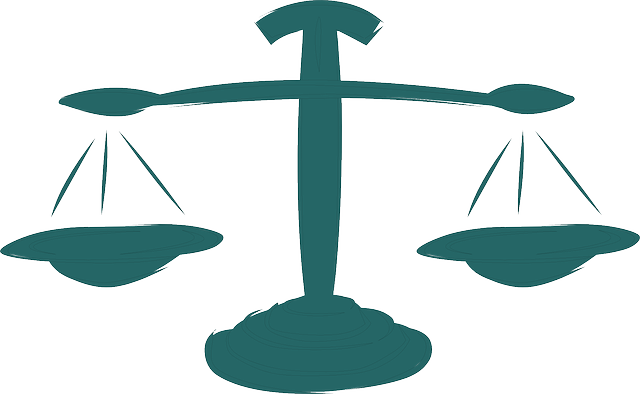How Securities Regulations Impact Litigation Outcomes: Strict securities regulations play a pivotal role in guiding corporate investigations and protecting investors. Adherence to these laws facilitates evidence collection, witness testimony, and robust legal arguments, potentially mitigating criminal charges. Proactive compliance fosters integrity within organizations, enhancing public trust and long-term sustainability. Understanding the impact of securities regulations is crucial for shaping successful case strategies and achieving favorable litigation outcomes, especially in white-collar and economic crime cases. Case studies analyzing the connection between regulatory adherence and litigation resolutions provide valuable insights into the effectiveness of these measures.
In today’s complex corporate landscape, C-level investigations are crucial in navigating securities regulations. These inquiries, triggered by legal and compliance issues, significantly impact litigation outcomes. This article delves into the intricate relationship between securities regulations and corporate probes, exploring strategies for mitigation and success. We also present case studies examining the effectiveness of securities regulation compliance, providing insights on how these measures can mitigate risks and drive positive outcomes in litigation.
- The Role of Securities Regulations in Corporate Investigations
- Triggers for C-Level Investigations: Legal and Compliance Perspectives
- Impact on Litigation Outcomes: Strategies for Mitigation and Success
- Case Studies: Examining the Effectiveness of Securities Regulation Compliance
The Role of Securities Regulations in Corporate Investigations

Securities regulations play a pivotal role in shaping the landscape of corporate investigations, influencing how businesses operate and ultimately impacting litigation outcomes. These regulations are designed to protect investors by ensuring fair and transparent practices in the financial markets. When a corporate investigation arises, legal professionals must navigate these complex rules to defend their clients effectively, whether they are corporate or individual. Understanding how securities laws apply can be crucial in avoiding indictment and shaping the strategic direction of a case.
The impact of these regulations extends beyond compliance; they guide the collection and admissibility of evidence, witness testimony, and legal arguments presented in court. By adhering to securities regulations, companies can demonstrate due diligence, which may work in their favor during jury trials. This proactive approach not only helps avoid criminal charges but also fosters a culture of integrity within organizations, ensuring long-term sustainability and public trust.
Triggers for C-Level Investigations: Legal and Compliance Perspectives

C-Level investigations are often triggered by a variety of factors, but legal and compliance perspectives play a pivotal role in their initiation. Securities regulations, for instance, are stringent and designed to protect investors from fraudulent activities. Non-compliance with these regulations can lead to serious legal consequences, including lawsuits and indictments. As such, companies and their executives must remain vigilant, ensuring every decision and practice aligns with the letter and spirit of the law.
The impact of securities regulations on litigation outcomes cannot be overstated. Companies that proactively address compliance issues and implement robust internal controls are better positioned to avoid indictment and achieve extraordinary results in legal disputes. This proactive approach involves not just adhering to the law but also fostering a culture of ethical business practices within the philanthropic and political communities, where trust and transparency are paramount.
Impact on Litigation Outcomes: Strategies for Mitigation and Success

The impact of securities regulations on litigation outcomes is profound, especially in cases involving white-collar and economic crimes. When navigating complex legal landscapes, understanding how these regulations influence strategies for mitigation and success is key. Companies facing investigations must recognize that compliance with stringent securities laws is not merely a regulatory requirement but also a strategic advantage in court.
A robust strategy for mitigating the impact of securities charges involves proactive disclosure, thorough record-keeping, and implementing internal controls. Early identification and remediation of issues can lead to winning challenging defense verdicts. Furthermore, demonstrating due diligence and adherence to legal standards can result in complete dismissal of all charges, enhancing the company’s reputation and financial stability.
Case Studies: Examining the Effectiveness of Securities Regulation Compliance

In today’s complex financial landscape, examining the effectiveness of securities regulation compliance is crucial for understanding how it influences litigation outcomes. Case studies offer a powerful lens to analyze this relationship, especially in high-stakes cases involving white-collar and economic crimes. By studying real-world scenarios, we can uncover insights into whether stringent regulatory adherence leads to more favorable resolutions or if there are unique challenges within these complex cases.
These investigations often reveal the impact of proactive compliance programs on deterring potential violations, as well as their role in facilitating efficient settlements. Achieving extraordinary results in securities litigation depends on navigating intricate legal and factual issues. Thus, understanding how robust regulatory measures can either mitigate risks or intensify them is essential for both regulators and practitioners, ensuring that justice is served in these high-profile cases.
Securities regulations play a pivotal role in corporate investigations, with C-level executives increasingly facing scrutiny. Understanding the triggers and impact of these inquiries is essential for mitigating risks and navigating legal complexities. By examining case studies, we can glean valuable insights into how robust securities regulation compliance can significantly influence litigation outcomes, ensuring organizational resilience and strategic continuity.






